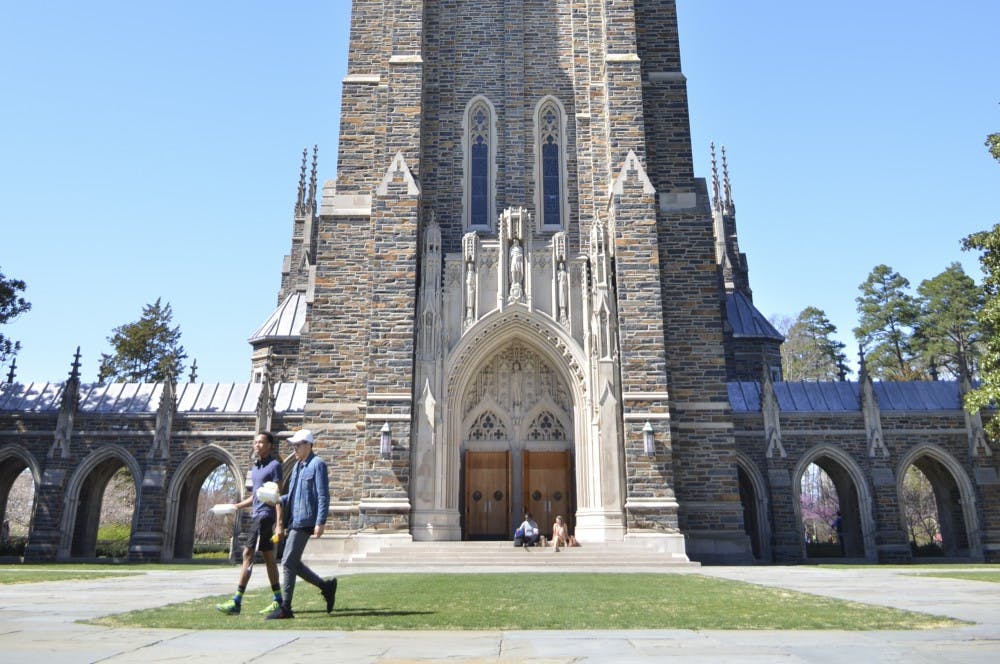A Duke University economics professor’s syllabus prohibiting writers for the Duke Chronicle from taking his class has been met with public concern and outcry.
Inside Hedge Funds, the class taught by Linsey Lebowitz Hughes, lists a variety of high-profile guest speakers in the syllabus.
Michael Schoenfeld, Duke’s vice president for public affairs and government relations, released a statement distancing the university from the syllabus.
“The statement in the syllabus was the instructor’s clumsy way of saying that guest speakers should be considered off the record so they could be candid in their conversations with students,” he said in the statement. “No one was, or ever will be, barred from enrolling in any class because they are affiliated with The Duke Chronicle or any other student organization.”
Rachael Jones, media law fellow at the UNC School of Law, said the discretion could allow for more worthwhile discussions with the speakers.
“There is a level of freedom that comes with confidentiality,” she said. “But I don’t think that such an extreme step is necessarily warranted in order to promote that concept.”
Chris Roush, a journalism professor at UNC, has had Jon King — the chief investment officer for UNC — come to his business reporting class in the past. The talks have been off-the-record.
“There have always been Daily Tar Heel students in the class, and I have always encouraged them that if they think something is newsworthy to follow up with him,” Roush said. “It has been off-the-record because that has given King the comfort of knowing he can explain something to a DTH student later on-the-record in more detail later on if he needs to.”
Scott McCartney, Wall Street Journal writer and chairperson of the Duke Student Publishing Company, said the conflict surrounding the syllabus is centrally a discrimination concern.




